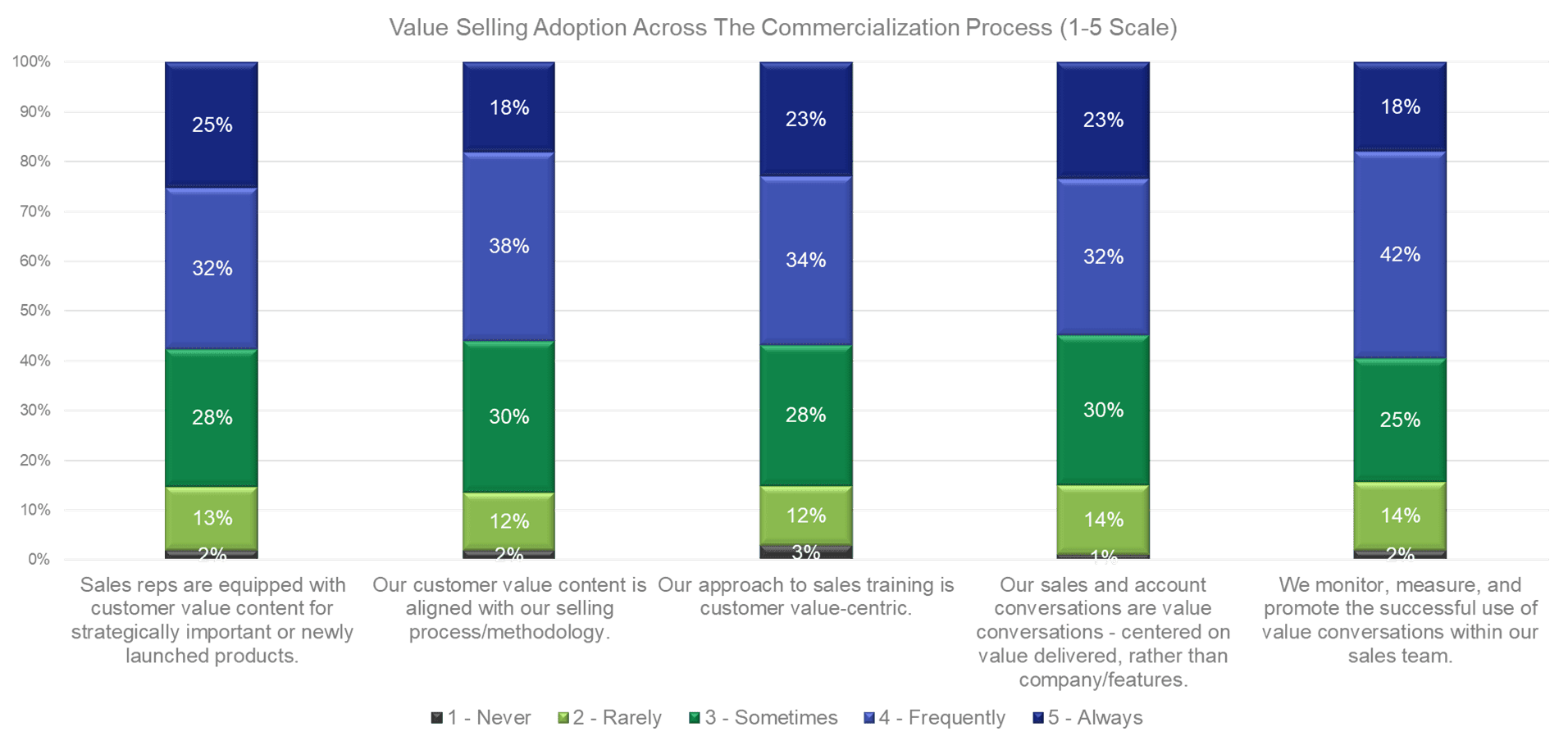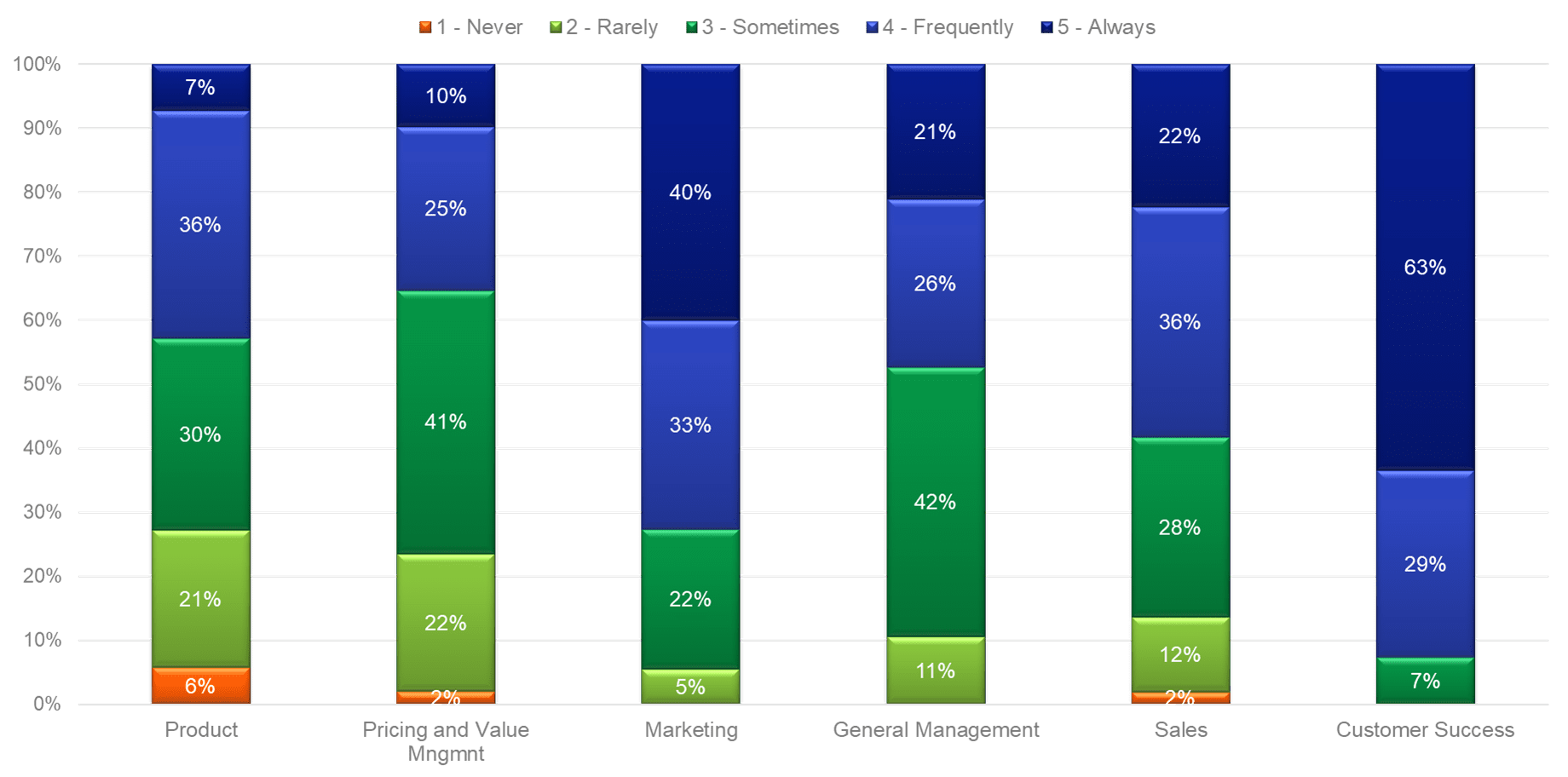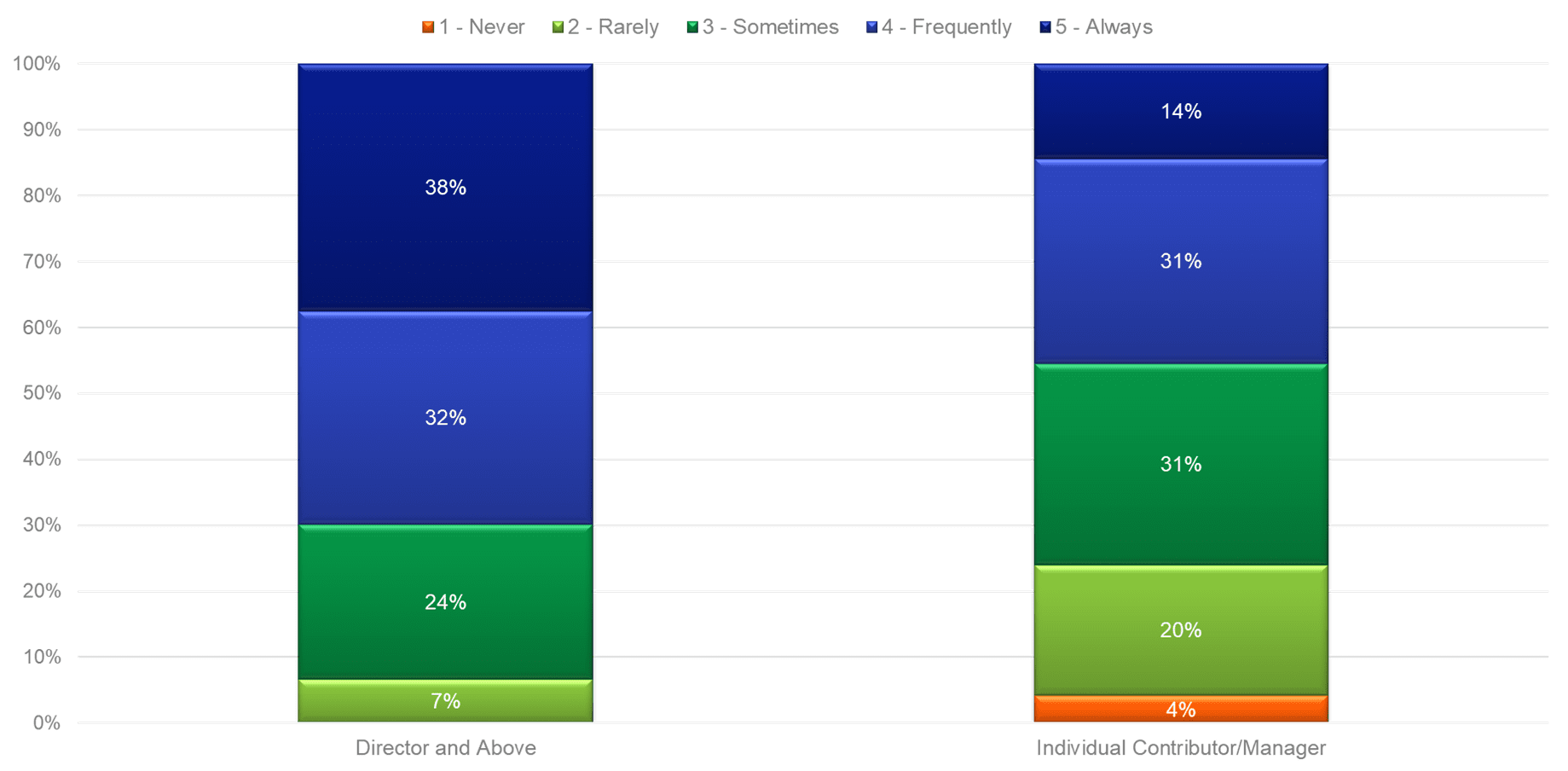The sales process is the make-or-break point of every B2B value management initiative. While poor or inconsistent value strategies in the innovation, pricing, and product management processes can be a drag on B2B commercial performance, even the best-executed value management strategies will fail to deliver bottom-line results absent a strong value selling component. Through the survey we wanted to understand how value management impacts the sales process. Are sales reps equipped to sell value? Is value content aligned with sales methodology and process? Is sales training customer value centric? Are the actual conversations that salespeople are having centered on customer value (or are they product centric? And is value selling success being measured? Across the board, our audience was consistent in their adoption of value in the major aspects of the sales process, with between 55% and 60% responding that each process surveyed was used frequently or always. This was a welcome finding as the data implies there is no material decline in value utilization from the commercialization side to the go-to-market approach.

Value Selling Adoption Across The Commercialization Process
However, there were some interesting differences when we drilled down on a few key demographics. We found that there was a pretty stark difference in job function when it came to the question of whether sales is being equipped with customer value content. Almost three-quarters of marketers and over 90% of customer success titles said that sales was equipped with value contant always or frequently. In contrast, only 58% sales reps felt the same. Earlier, we discovered that marketers in particular tended to have a more qualitative definition of what value content is. Further, sales respondents indicated value content tends to be value calculators. This difference in definitions of what comprises good value content could explain some of the differential. However, only 43% of product professionals and 35% of pricing/value experts agreed that sales were fully equipped.

“Sales reps are equipped with customer value content for strategically important or newly launched products.” – by Job Function
How do you square the relative optimism of marketers and the skepticism of the pricing/product teams? Who should be responsible for creating this value content? Our panel suggested that marketing and product teams must collaborate, with sales input to generate value content that communicates hard financial impact. “It has to come from marketing but I think the product expert needs to help create it,” explained Todd Snelgrove, Founding Partner at Experts in Value. “Simply put, buyers won’t pay extra when presented with a value proposition that doesn’t convey financial impact. “Here is one my favorite examples of a qualitative value proposition: ‘We’re a hundred-year-old company and we’re based in Europe.’ Are they going to pay me 20% more because of that?” His advice? Have a sales salesperson sit in on a product launch stage gate meeting and say, “my customer is not going to pay more for that. Or if they’re going to pay more, it’ll be 1%, not 30%.” Interestingly we also see a stark difference when looking at that same question split by job level. We observed a stark difference between decision-makers and frontline workers in their perception of how often sales are being equipped value content with value content for newly launched or strategically important products. 71% of leaders think this is always or frequently the case, compared to 44% of managers and contributors. This echoes the split in the perception of the overall success of value management initiatives we discussed previously.

“Sales reps are equipped with customer value content for strategically important or newly launched products.” – by Job Level
Taken together, the survey data suggest that the perception gaps of value management success across the commercial team and within the org chart are in part fueled by varying levels of understanding of what a value proposition actually is, in terms of the degree of financial quantification required, and how effectively it is being deployed across functions. Senior leadership should take heed – these perception gaps could be indicative of cross-team misalignment that could hinder the effectiveness of their enterprise’s value management initiatives. Want to learn more findings from the 2022 State of Value Management Survey? Check out our other posts:
- What is a value proposition? How do participants define value management and value selling?
- When is customer value utilized in making decisions for new and existing offerings?
- When in the sales process are value selling tactics deployed?
- What are some useful ways for individuals and organizations to improve their value management efforts?
- Survey Overview

